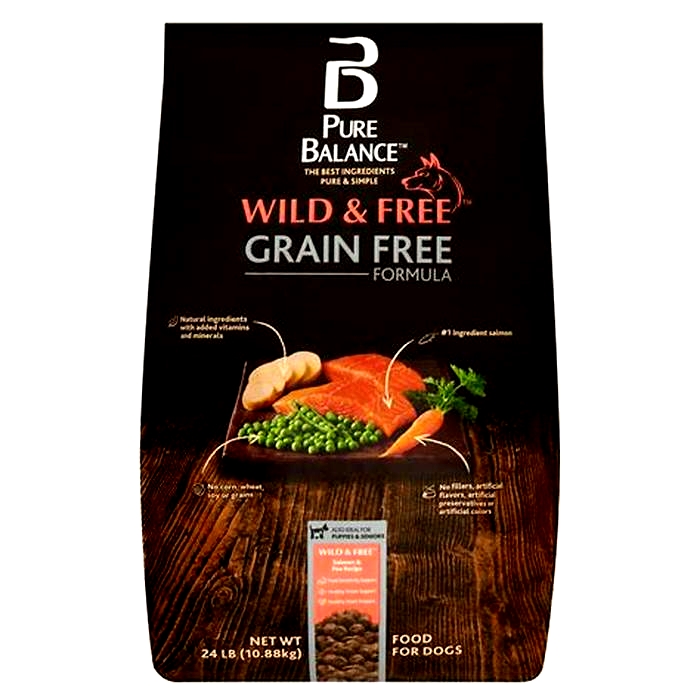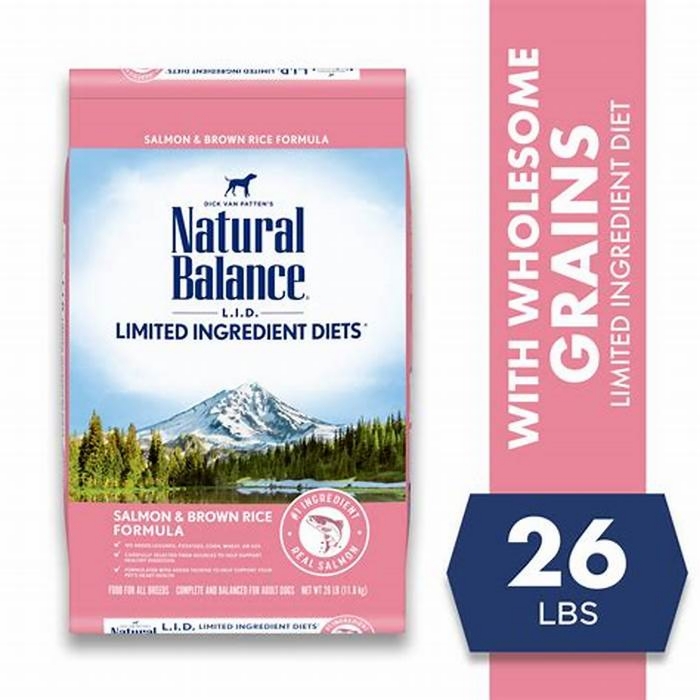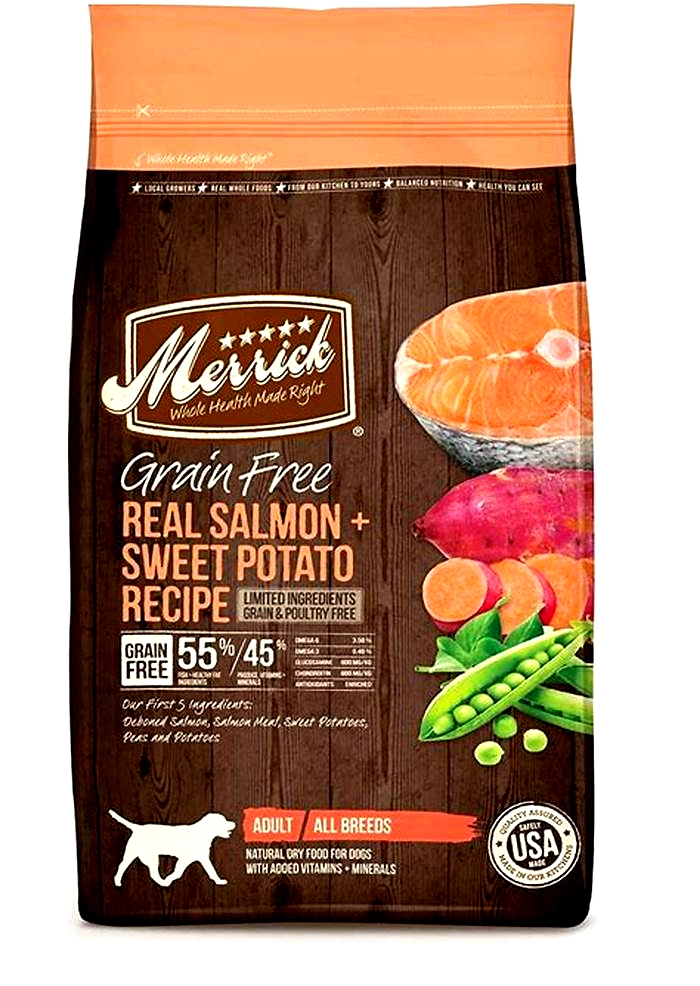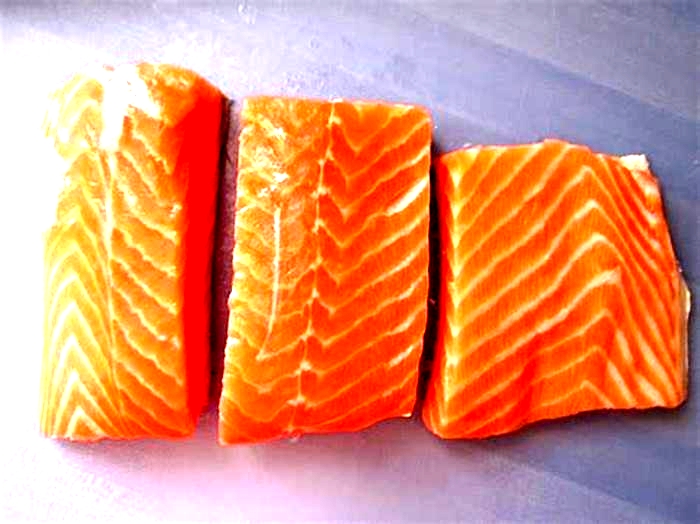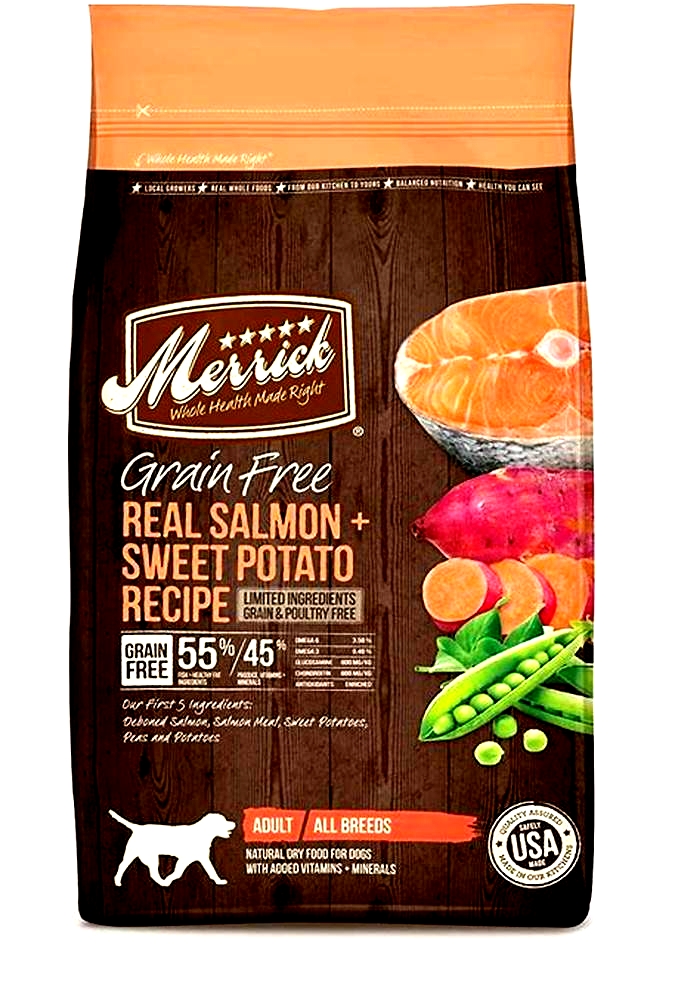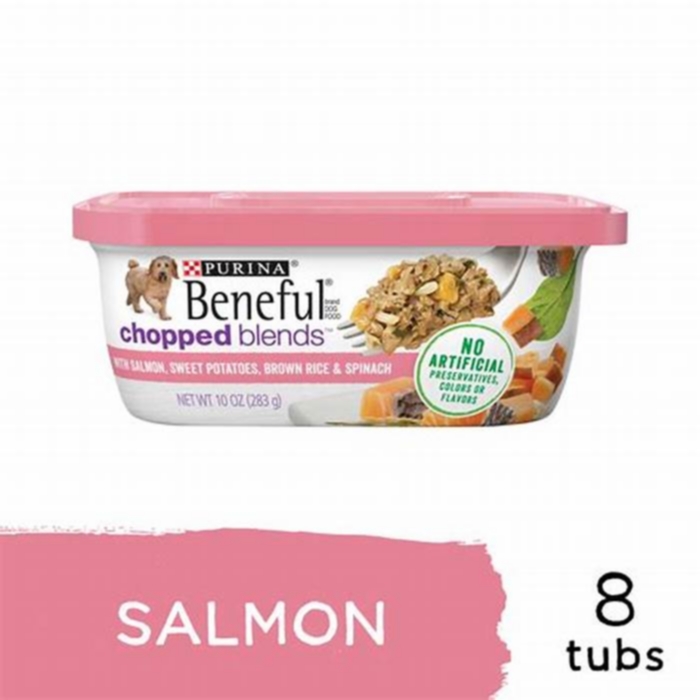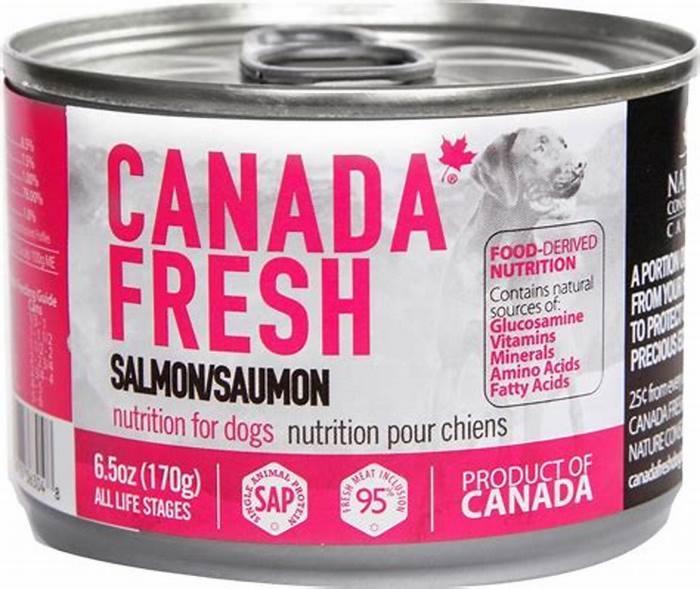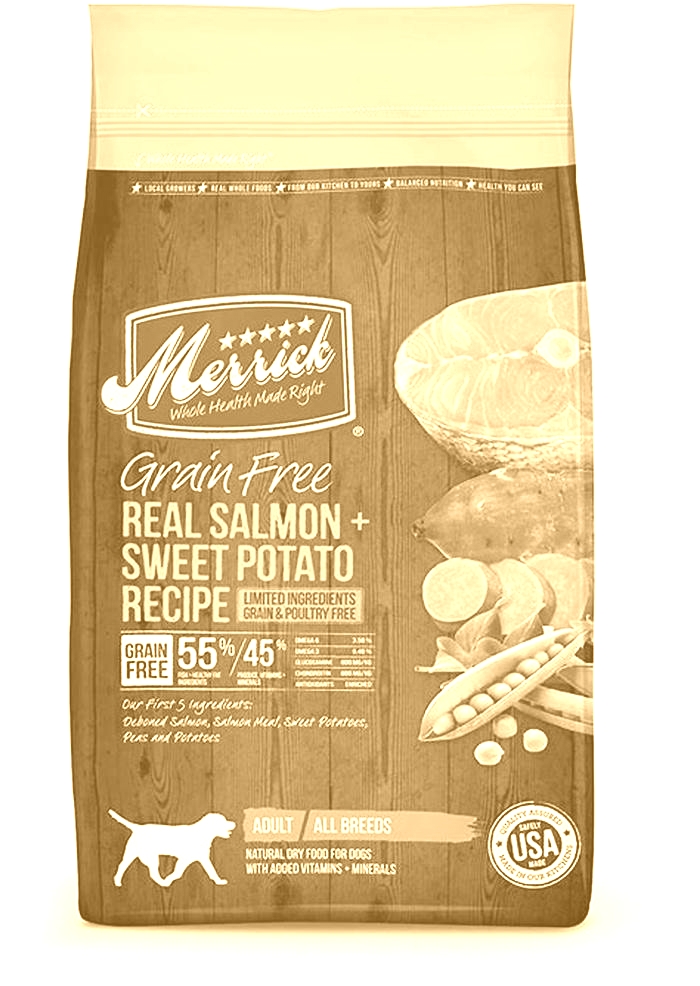pure balance salmon dog food
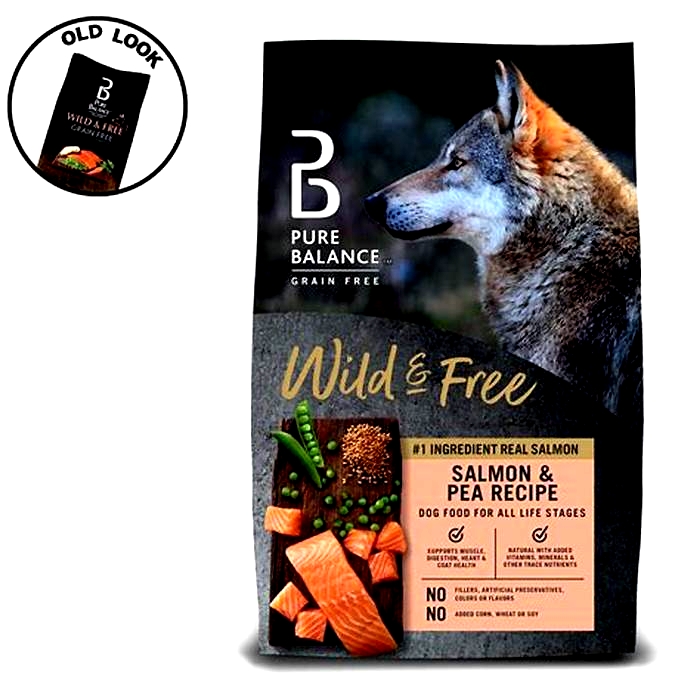
Pure Balance Grain Free Dog Food Review (Dry)
The Pure Balance Grain Free product line includes the 6 dry dog foods listed below.
Each recipe includes its AAFCO nutrient profile: Growth (puppy), Maintenance (adult), All Life Stages, Supplemental or Unspecified.
Recipe and Label Analysis
Pure Balance Grain Free Chicken and Pea was selected to represent the other products in the line for detailed recipe and nutrient analysis.
Ingredients Analysis
The first ingredient in this dog food is chicken. Although it is a quality item, raw chicken contains up to 73% water. After cooking, most of that moisture is lost, reducing the meat content to just a fraction of its original weight.
After processing, this item would probably account for a smaller part of the total content of the finished product.
The second ingredient is chicken meal. Chicken meal is considered a meat concentrate and contains nearly 300% more protein than fresh chicken.
The third ingredient includes dried peas. Dried peas are a good source of carbohydrates. Plus theyre naturally rich in dietary fiber.
However, dried peas contain about 27% protein, a factor that must be considered when judging the meat content of this dog food.
The fourth ingredient is dried potato, a dehydrated item usually made from the by-products of potato processing. In most cases, dried potato can contain about 10% dry matter protein which can have a slight affect on our estimate of the total meat content of this recipe.
The fifth ingredient is chicken fat. This item is obtained from rendering chicken, a process similar to making soup in which the fat itself is skimmed from the surface of the liquid.
Chicken fat is high in linoleic acid, an omega-6 fatty acid essential for life. Although it doesnt sound very appetizing, chicken fat is actually a quality ingredient.
The sixth ingredient is beet pulp. Beet pulp is a controversial ingredient, a high fiber by-product of sugar beet processing.
Some denounce beet pulp as an inexpensive filler while others cite its outstanding intestinal health and blood sugar benefits.
We only call your attention here to the controversy and believe the inclusion of beet pulp in reasonable amounts in most dog foods is entirely acceptable.
The seventh ingredient is pea protein, what remains of a pea after removing the starchy part of the vegetable.
Even though it contains over 80% protein, this ingredient would be expected to have a lower biological value than meat.
And less costly plant-based products like this can notably boost the total protein reported on the label a factor that must be considered when judging the meat content of this dog food.
The eighth ingredient is flaxseed, one of the best plant sources of healthy omega-3 fatty acids. Provided theyve first been ground into a meal, flax seeds are also rich in soluble fiber.
However, flaxseed contains about 19% protein, a factor that must be considered when judging the actual meat content of this dog food.
The ninth ingredient is pea starch, a paste-like, gluten-free carbohydrate extract probably used here as a binder for making kibble. Aside from its energy content (calories), pea starch is of only modest nutritional value to a dog.
From here, the list goes on to include a number of other items.
But to be realistic, ingredients located this far down the list (other than nutritional supplements) are not likely to affect the overall rating of this product.
With 5 notable exceptions
First, dried yeast can be a controversial item. Dried yeast contains about 45% protein and is rich in other healthy nutrients.
Fans believe yeast repels fleas and supports the immune system.
Critics argue yeast ingredients can be linked to allergies. This may be true, but (like all allergies) only if your particular dog is allergic to the yeast itself.
Whats more, a vocal minority insist yeast can increase the risk of developing the life-threatening condition known as bloat. However, this is something weve not been able to scientifically verify.
In any case, unless your dog is specifically allergic to it, we feel yeast should be considered a nutritious addition.
Next, the minerals listed here do not appear to be chelated. And that can make them more difficult to absorb. Chelated minerals are usually associated with higher quality dog foods.
In addition, we note the use of taurine, an important amino acid associated with the healthy function of heart muscle. Although taurine is not typically considered essential in canines, some dogs have been shown to be deficient in this critical nutrient.
Since taurine deficiency appears to be more common in pets consuming grain-free diets, we view its presence in this recipe as a positive addition.
Next, we note the inclusion of dried fermentation products in this recipe. Fermentation products are typically added as probiotics to aid with digestion.
And lastly, this product contains sodium selenite, a controversial form of the mineral selenium. Sodium selenite appears to be nutritionally inferior to the more natural source of selenium found in selenium yeast.
Nutrient Analysis
Based on its ingredients alone, Pure Balance Grain Free Dog Food looks like an above-average dry product.
The dashboard displays a dry matter protein reading of 30%, a fat level of 18% and estimated carbohydrates of about 44%.
As a group, the brand features an average protein content of 31% and a mean fat level of 17%. Together, these figures suggest a carbohydrate content of 44% for the overall product line.
And a fat-to-protein ratio of about 55%.
Which means this Pure Balance product line contains
Above-average protein. Near-average fat. And below-average carbs when compared to other dry dog foods.
Even when you consider the protein-boosting effect of the dried peas, dried potato, pea protein, flaxseed and dried yeast, this looks like the profile of a kibble containing a notable amount of meat.
Pure Balance Dog Food Recall History
The following automated list (if present) includes all dog food recalls related to Pure Balance through April 2024.
No recalls noted.
You can view a complete list of all dog food recalls since 2009 here.
Pure Balance Wild & Free Grain Free Formula - Salmon & Pea Recipe Review
While the first few ingredients typically dominate the recipe's composition, ingredients in small quantities can still have a meaningful impact on the overall nutritional profile of the recipe.
Salmon is an excellent source of high-quality protein, omega-3 fatty acids, and essential vitamins and minerals that support your dog's immune system, brain function, and skin and coat health.
Salmon meal is a high-quality protein source that also provides omega-3 fatty acids, which support skin and coat health, as well as overall wellness.
Dried ground pea is a good source of fiber and protein, supporting your dog's digestive health and muscle growth.
Tapioca is a gluten-free carbohydrate source that provides energy and can be easily digested by most dogs.
Pea protein is a plant-based protein source that is often used as a supplement in dog food. It's beneficial for dogs with food sensitivities or those on a plant-based diet.
Fish meal is a highly digestible protein source for dogs, providing essential amino acids, omega-3 fatty acids, and other nutrients. It supports skin and coat health, cognitive function, and overall well-being.
Dried plain beet pulp is a source of dietary fiber that can help support your dog's digestive health, promote regular bowel movements, and aid in nutrient absorption.
Poultry fat (preserved with mixed tocopherols) is a concentrated source of energy for dogs, providing essential fatty acids that support skin and coat health, cognitive function, and immune system health. The preservation with mixed tocopherols, a form of vitamin E, ensures freshness and stability.
Dried carrot is a natural source of antioxidants, vitamins, and minerals that can support your dog's immune system, vision, and overall health. This ingredient is also high in dietary fiber, which can promote healthy digestion and help maintain a healthy weight.
Sunflower oil is rich in linoleic acid, an essential fatty acid that promotes a healthy coat and skin.
Natural flavor is added to dog food to enhance its taste and make it more appealing to your pet. This can help encourage your dog to eat a balanced and nutritious diet, supporting their overall health and well-being.
Whole Potato is a beneficial source of vitamins and minerals, including Vitamin C and potassium, and it's also high in fiber, which can aid in digestion.
Calcium carbonate is a valuable source of calcium, an essential mineral for strong bones and teeth, and for supporting proper muscle function in your dog.
While salt is a necessary component of a dog's diet, providing essential minerals such as sodium and chloride for proper cellular function, it should be provided in moderation to avoid health issues like hypertension or kidney damage.
Flaxseed is an excellent source of omega-3 fatty acids, dietary fiber, and essential nutrients, which can support your dog's skin, coat, and digestive health.
Potassium chloride is an essential mineral supplement that helps maintain your dog's electrolyte balance and supports healthy nerve and muscle function.
Zinc proteinate is a highly absorbable form of zinc. It helps support a healthy immune system, skin, and coat in dogs.
Vitamin E supplement is an essential nutrient that helps support your dog's immune system, skin health, and overall wellness.
Iron proteinate is a chelated form of iron that is more easily absorbed by your dog's body, supporting their red blood cell production and overall health.
Choline Chloride is an essential nutrient that aids in brain and liver function, muscle movement, and supports healthy metabolic processes.
L-ascorbyl-2-polyphosphate is a stable form of vitamin C, an essential antioxidant that supports your dog's immune system, joint health, and overall wellness.
Manganese Proteinate is a chelated form of manganese, a mineral that supports bone health, metabolism and enzymatic reactions.
Copper Proteinate is a chelated form of copper that's easier for dogs to absorb, aiding in red blood cell formation and iron absorption.
Niacin, also known as Vitamin B3, is essential for a dog's metabolism and energy production, and supports healthy skin and coat.
D-Calcium Pantothenate is a source of pantothenic acid, a B-vitamin that helps in energy metabolism and the synthesis of important compounds in the body.
L-carnitine is an essential nutrient that helps your dog's body convert fat into energy, promoting a healthy weight and supporting their overall well-being.
Biotin is a B-vitamin that's important for maintaining healthy skin, coat, and nails in dogs.
Sodium selenite is a form of selenium, a necessary trace mineral that supports immune function and thyroid health in dogs.
Vitamin A Supplement is important for supporting vision, immune function, and skin health in dogs.
Riboflavin supplement is a source of Vitamin B2, which is crucial for your dog's energy production, cell function, and overall growth and development.
Thiamine mononitrate is a form of vitamin B1 that helps support your dog's nervous system function, energy metabolism, and overall health.
Vitamin B12 Supplement is an essential vitamin that helps support brain function and the formation of red blood cells.
Calcium iodate is a source of iodine, an essential trace mineral that supports your dog's thyroid function and overall metabolism. It helps maintain proper hormone production and is crucial for overall health and well-being.
Pyridoxine hydrochloride is a source of vitamin B6, which is essential for your dog's nervous system function, immune health, and red blood cell production.
Vitamin D3 supplement is an essential vitamin that supports bone health, immune function, and overall well-being in dogs. It helps regulate calcium and phosphorus balance in the body, promoting strong and healthy bones.
Folic acid is a crucial B-vitamin that aids in the synthesis of DNA and supports healthy cell growth. It's essential for maintaining your dog's overall health, particularly during periods of rapid growth.
Crude Protein (min) of 24.00%: The primary contributors to the protein content in this pet food are the salmon, salmon meal, pea protein, and fish meal. Salmon and salmon meal are high-quality sources of animal protein that provide essential amino acids. Pea protein is a plant-based protein that complements the animal proteins, while fish meal is another concentrated source of animal protein.
Crude Fat (min) of 15.00%: The fat content is likely derived from the salmon, which contains natural fish oils, as well as the poultry fat and sunflower oil included in the ingredients. Poultry fat is a common source of animal fat in pet foods, while sunflower oil provides additional fatty acids that are beneficial for a pet's coat and skin health.
Crude Fiber (max) of 5.00%: Fiber in this formula comes from ingredients like dried ground peas, dried plain beet pulp, and whole potato. Dried ground peas not only contribute protein but also provide fiber. Beet pulp is a common fiber source in pet foods, known for its ability to support healthy digestion. Whole potatoes also contribute to the overall dietary fiber content.
Calories of 3513.00 per kg: The caloric content is a measure of the energy provided by all the ingredients combined. The proteins (from salmon and other sources), fats (especially from poultry fat and oils), and carbohydrates (from ingredients like tapioca and peas) all contribute to the total caloric value of the pet food. Tapioca is a carbohydrate source that serves as an energy-providing ingredient, while the fats are generally more calorie-dense than proteins or carbohydrates, making them significant contributors to the overall calorie content.

